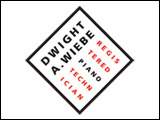Change can be tough but we live with it every day. We age, our working, personal and family life changes. Our financial goals and expectations change. And as these things change so does our need for insurance. Here are the types of insurance that make the most sense for each of life’s three main stages.
Under 40
As you begin to build your family, insurance should be a simple and economical solution to your emerging needs. You’ll want to protect your family by establishing a source of cash that will pay off your mortgage and other debts should you become unable to do so. You’ll likely want to provide funds for the education of your children.
Life insurance pays a lump sum to your beneficiaries. Term insurance is often the most affordable kind of life insurance for young families. It pays a specified amount should you die, but premiums increase with each policy renewal and get very expensive over time.
Disability insurance is a must. It provides a regular income stream should you become disabled and unable to work. You may already have some disability insurance as part of your employment benefits package but backing it up with your own personal plan is a good idea.
40 to 60
Your personal and financial life are maturing and becoming more complex. To keep pace, consider increasing life insurance protection for both you and your spouse. Look at changing to a type of permanent insurance coverage that can fulfill your estate plan. Whole Life insurance offers a guaranteed amount of coverage for life and, unlike term insurance, the premium never goes up.
Disability insurance assumes even more importance and now is the time to also check out Critical Illness insurance. It provides a lump sum payment that you can usually use any way you wish when you are diagnosed with a medical condition covered by the policy, such as heart attack, stroke or cancer.
Over 60
You now have different reasons for revising your insurance protection – like using life insurance to pay estate liabilities (the taxes on your registered savings plans, capital gains on real estate and other investments) so your beneficiaries can inherit the entire value of your estate free of tax consequences. Universal life and whole life insurance work well for estate creation and preservation and the investment component can be a source of non-registered retirement savings. Term insurance isn’t a good option. Most term policies don’t allow renewal after age 75 or 80 and the premiums are prohibitively expensive.
The chances of disability rise with age, so check your coverage and consider adding Long-Term Care insurance to protect your loved ones from the financial burden of a lengthy illness requiring nursing home or home care.
Yes, change can be tough. Make it easier with the help of your professional advisor who can tailor your insurance program to every stage of your changing life.
This column, written and published by Investors Group Financial Services Inc.(in Québec - a Financial Services Firm), presents general information only and is not a solicitation to buy or sell any investments. Contact your own advisor for specific advice about your circumstances. For more information on this topic please contact your Investors Group Consultant. Insurance products and services are distributed by I.G. Insurance Services Inc. (in Québec - a Financial Services Firm). Insurance licence sponsored by The Great-West Life Assurance Company outside of Québec.



